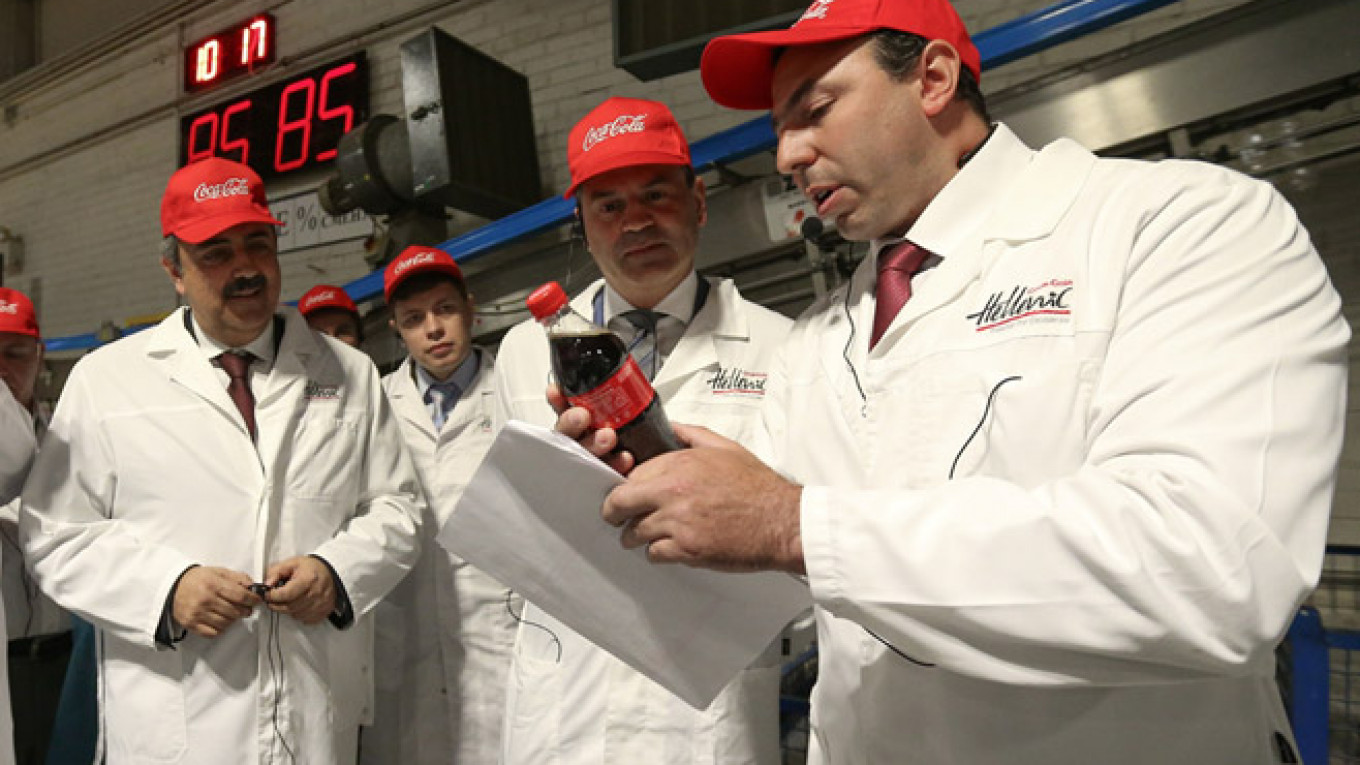Special report for MT?
Correction appended.
Coca-Cola Hellenic — one of the largest franchised bottlers of Coca-Cola products in the world — has opened a new, high-tech production line at its plant outside Moscow as part of an ongoing commitment to expanding its presence in the Russian market at a time when most European companies are downgrading their outlooks.
"We are upgrading our capacity by 30 percent with our new line, with the latest technology ... that provides almost 45 percent energy savings over the previous analog lines," said Coca-Cola Hellenic Russia's CEO Stefanos Vafeidis, while speaking to reporters touring the new production line.
These efforts have boosted the factory's output significantly, Vafeidis said.
"All in all, it gives this plant the ability to produce more than 3 million liters of finished product a day, which is more than enough to satisfy current and near future demand, and provides good opportunity for investments," he said.
Vafeidis said that the new production line at the Solntsevo plant, which cost the company 10 million euros ($13.6 million), is part of the company's ongoing drive to improve its facilities and the quality and capacity of existing operations
The Coca-Cola Company, which supplies Coca-Cola Hellenic with the ingredients for Coca-Cola products, recently closed two of its four Russian juice plants run by Nidan, which it bought in 2010. This was done in order to optimize its production capacities in the shrinking Russian juice market.
Coca-Cola Hellenic is looking at expansion in Russia, despite widespread concerns over the state of the market amid the ongoing crisis in Ukraine and a declining ruble that has forced many European companies to revise their forecasts.
Vafeidis said that "this line and all of the investments we do is complete proof of our belief in the growth of the Russian market, and this positive outlook is translated in to our investments to increase our capacities … in terms of quality and ensuring that we have the highest standards for our Russian consumers."
Alexei Komissarov, the head of the Moscow Administration Science, Industrial Politics and Business Department praised is for its modernization and energy efficiency drives at its Moscow plant — located in Moscow region's southwest Solntsevo district. Coca-Cola Hellenic enjoys good relations with the Moscow city government, despite political tensions over the crisis in Ukraine and escalating Western sanctions against Russia.
Coca-Cola Hellenic is one of the largest franchised bottlers of Coca Cola in the world, and the largest in Europe — where it operates in 28 countries. In Russia, these activities are carried out by 14 facilities, situated in Moscow, St. Petersburg, Orel, Nizhny Novgorod, Samara, Volga, Yekaterinburg, Rostov, Novosibirsk, Krasnoyarsk and Vladivostok.
Correction: An earlier version of this report incorrectly named two juice factories closed by Coca-Cola as Nidan and Multon. In fact, Nidan and Multon are subsidiaries of Coca-Cola in Russia, and the two closed plants were run by Nidan. The article also incorrectly said the capacity of the two closed plants was 790 million liters per year. This is in fact the combined capacity of two juice plants run by Multon.
Contact the author at bizreporter@imedia.ru
A Message from The Moscow Times:
Dear readers,
We are facing unprecedented challenges. Russia's Prosecutor General's Office has designated The Moscow Times as an "undesirable" organization, criminalizing our work and putting our staff at risk of prosecution. This follows our earlier unjust labeling as a "foreign agent."
These actions are direct attempts to silence independent journalism in Russia. The authorities claim our work "discredits the decisions of the Russian leadership." We see things differently: we strive to provide accurate, unbiased reporting on Russia.
We, the journalists of The Moscow Times, refuse to be silenced. But to continue our work, we need your help.
Your support, no matter how small, makes a world of difference. If you can, please support us monthly starting from just $2. It's quick to set up, and every contribution makes a significant impact.
By supporting The Moscow Times, you're defending open, independent journalism in the face of repression. Thank you for standing with us.
Remind me later.


